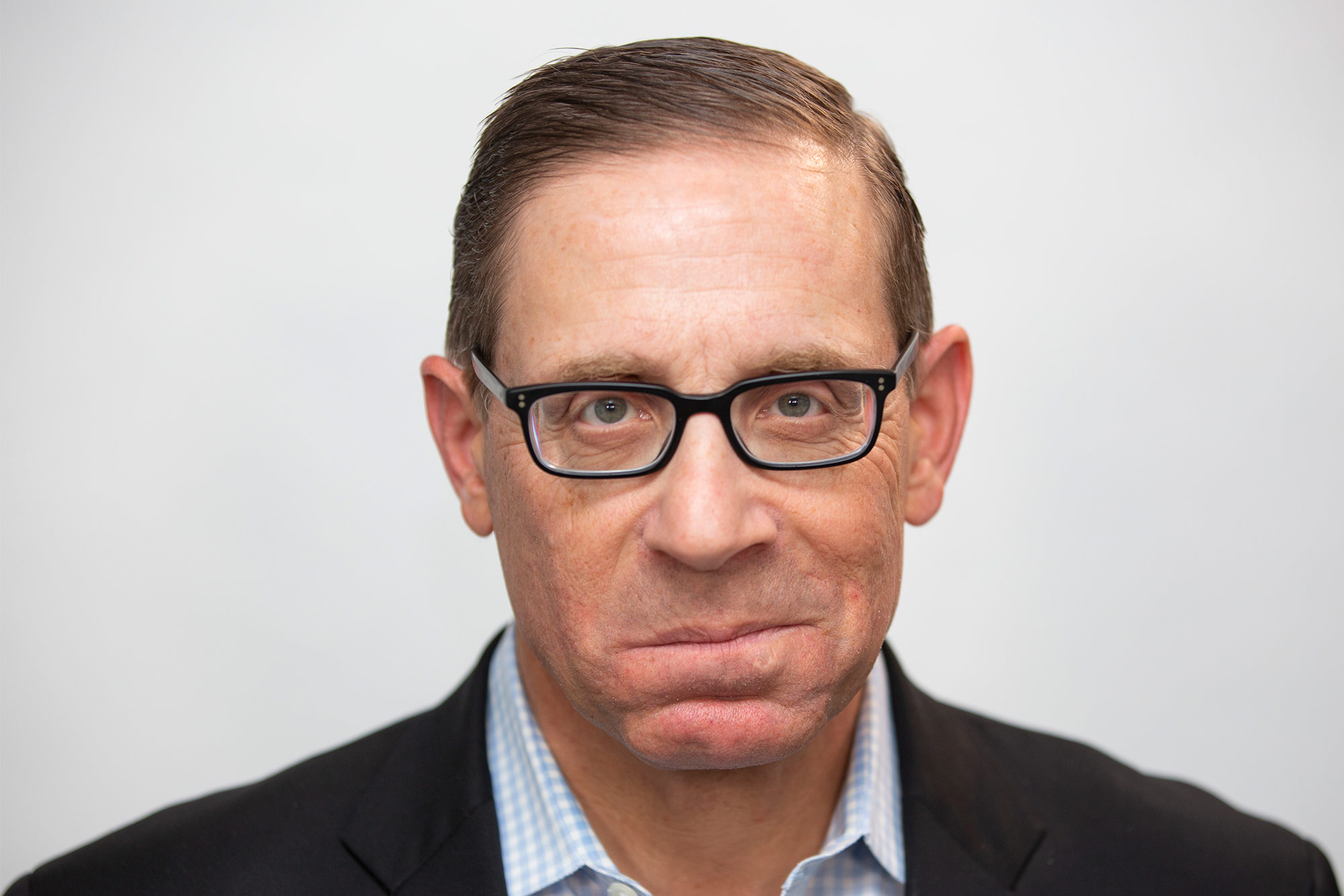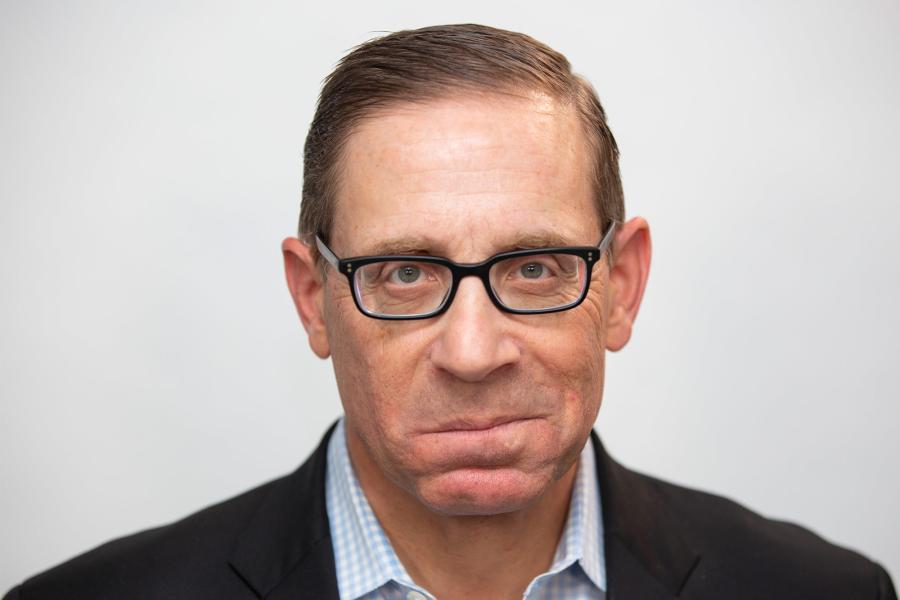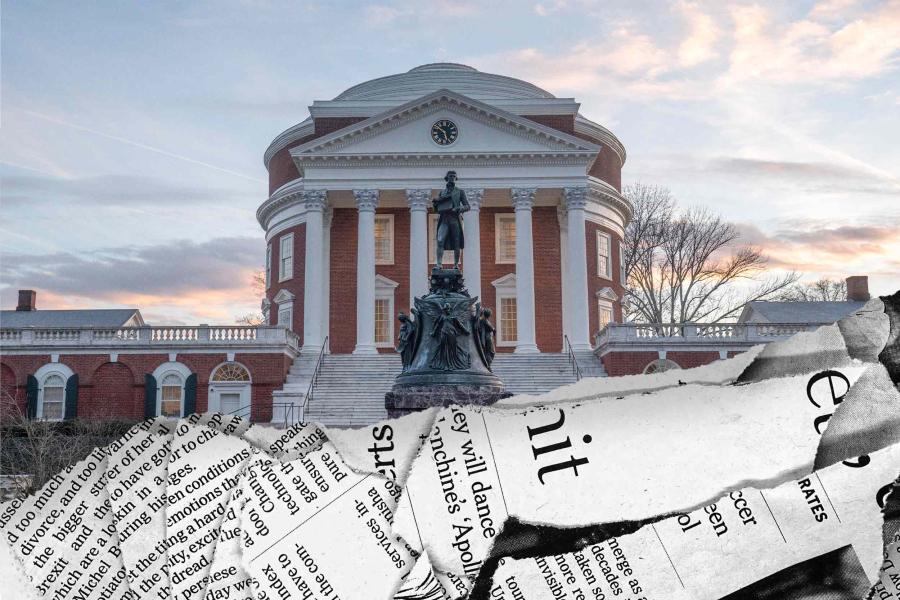The future of local news may well be not-for-profit.
University of Virginia experts say continuing budget and personnel cuts at local news outlets across the country that are owned by national news corporations are “affecting the civic health” of the communities they serve.
The answer to that could be nonprofit organizations such as States Newsroom, which operates offices in 32 states (including the Virginia Mercury), or the Texas Tribune, which covers public policy, politics, government and statewide issues in Texas.
“The big hedge funds and the big conglomerates that buy up newspapers around the country and then starve them and don’t invest in the basic functions of a newspaper in a community are really performing an enormous disservice,” said Evan Smith, practitioner fellow with the University of Virginia’s Karsh Institute of Democracy.
“The problem with owners of news organizations outside of the community is that they don’t have a sense of what the community wants or needs. They don’t have an investment, in a literal and existential sense, in the well-being and civic health of the community,” he said.
Smith, who helped build and lead the award-winning Texas Tribune, is serving a year as the Karsh Institute ’s first Distinguished Fellow in Journalism, curating and participating in programs that highlight challenges facing local media and ways to connect Americans with informative, independent journalism. His fellowship is sponsored in partnership with Virginia Humanities.
Smith will discuss the future of local news at a public keynote during the Karsh Institute and Virginia Humanities’ inaugural Virginia Local News Summit April 20-21 in Richmond.
Smith is not alone in his concerns about the state of corporate news.
“I have a journalism degree and spent the first couple years of my career at a couple of smaller papers in Ohio, from mid-2006 through the end of 2008,” said Kyle Kondik, managing editor of Sabato’s Crystal Ball, the UVA Center for Politics’ nonpartisan newsletter. “Even then, papers were getting hollowed out, both by getting gobbled up by bigger companies and also by the 2008 recession. The situation has only gotten worse over time.”

When local newspapers shrink or disappear, that can mean a community loses valuable government watchdogs.
“The importance of local media is that, at the very least, government officials used to know that if there was a council meeting or a school board meeting or something, someone from a local news entity would be there to provide at least some level of accountability,” Kondik said. “With the decline of local papers, my guess is that even this basic level of accountability is vanishing across many communities.”
The decline in staffing of local news organizations is well documented. From 2019, when newspaper corporations Gatehouse and Gannett merged, there were 21,300 employees working across the country for both companies. As of the Jan. 1 of this year, that number was 11,200.
Since 2019, the nation’s largest news chain has closed 117 websites and 127 newspapers, according to regulatory filings and independent reports. The trend is playing out in real time in Virginia, where 39 weekly papers and three dailies closed between 2004 and 2020, a 27% decrease.
Lee Enterprises, which owns 77 daily news organizations in 26 states, including 11 Virginia newspapers from Bristol to Fredericksburg, has cut staff over the past year and recently announced furloughs for those working at some of its properties. Lee Enterprises owns the Richmond Times-Dispatch and the Charlottesville Daily Progress.
“I don’t think the issue is that news organizations are unwilling to write hard stories because they’re concerned about offending people, I just think that there are no reporters anymore,” Smith said. “No one has institutional memory. Nobody knows the community. No one is able to pursue for any length of time a story that may require a lot of work, some investigation.”
News organizations have three basic functions in democracy, Smith said. The first is to search for the truth and tell the community what is found. The second is to hold accountable the people and institutions in power, and the third is to let people know what is important to them.
The fewer reporters and resources a local news outlet has, the less able it is to perform those tasks, he said.
“You can’t do that if you don’t have reporters who have the ability, the time and the supportive leadership in the organization,” he said. “Because when you overturn rocks, sometimes some unpleasant things crawl out and you may get heat from people about that, but you’ve got to keep going.”
Jennifer L. Lawless is the Leone Reaves and George W. Spicer Professor of Politics and professor of public policy at UVA’s Frank Batten School of Leadership and Public Policy. She said that in past few decades turnout in U.S. presidential elections soared, education levels hit historic highs and the internet made information more accessible than ever. At the same time, Americans grew less engaged with local politics and elections. She sees the demise of local news as a major culprit.
“As newspapers have suffered financially and slashed newsroom staff, they have dramatically cut their coverage of mayors, city halls, school boards, county commissions and virtually every aspect of local government. In turn, fewer Americans now know who their local elected officials are and turnout in local elections has plummeted,” Lawless said.
“To reverse this trend and preserve democratic accountability in communities across the country, citizen interest in local news and politics must be reinvigorated – and soon,” she said.
That’s where nonprofit news organizations may step in. In 2009, Smith co-founded and led the nonprofit news organization Texas Tribune with the goal of providing unbiased, accessible, member-supported news covering the state and local governments.
Although the idea sounds good, the work of putting it together and keeping it running and funded is difficult.
“It takes a long time and you fail a lot and you have to brush yourself off and get back up,” Smith said. “But after 13 years, when I stepped away as the CEO of the Tribune, we had built the largest newsroom covering the state capitol of any news organization, for profit or nonprofit, in the country.
“We raised $120 million to build a staff of 100,” he said. “We have a sustainable operation, a going concern. And I want everybody to have one of them in every state.”
Media Contact
Assistant Editor, UVA Today Office of University Communications
bkm4s@virginia.edu 434-924-3778
Article Information
April 23, 2024






